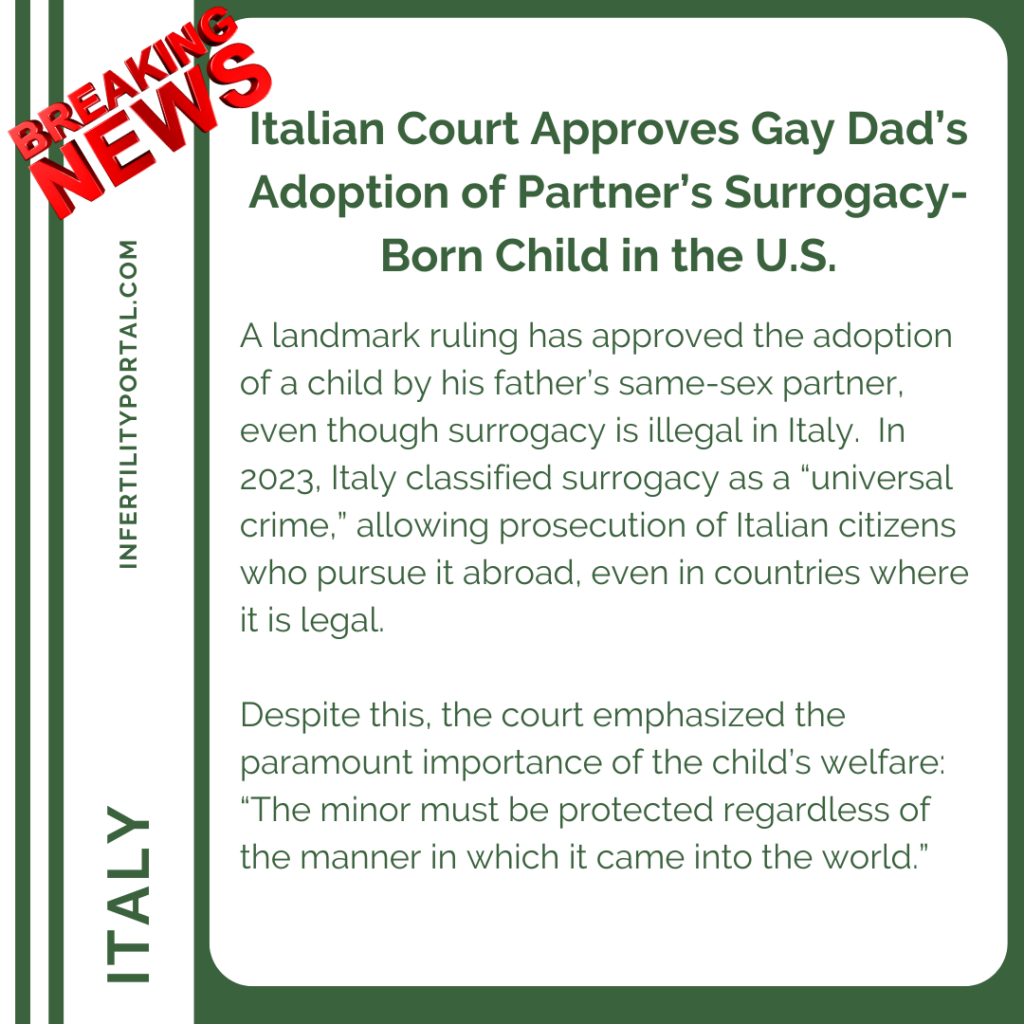Italian Court Approves Same-Sex Adoption in Landmark Ruling—Despite Surrogacy Ban
In a groundbreaking legal decision, an Italian court has approved the adoption of a child by his father’s same-sex partner, despite the country’s strict stance against surrogacy. This ruling represents a significant shift in how Italian law is interpreting the rights of children born through international surrogacy arrangements, especially in same-sex families.
Background: Surrogacy as a “Universal Crime”
Italy has long banned surrogacy within its borders. In 2023, the country took this restriction even further, classifying surrogacy as a “universal crime.” This controversial law allows Italian authorities to prosecute citizens who engage in surrogacy abroad, even in countries where the practice is legal. The law was widely criticized by human rights advocates and LGBTQ+ organizations for targeting families created through assisted reproductive technology.
👨👨👦 The Case: A Child, Two Fathers, and the Law
In this case, the child was born through surrogacy before the 2023 law came into force. The biological father is an Italian citizen in a same-sex partnership. Although surrogacy remains illegal in Italy, the court focused on the child’s well-being rather than the legality of the child’s birth method.
The judges ruled in favor of allowing the father’s partner to legally adopt the child, granting full parental rights and recognition. In doing so, they emphasized a powerful principle:
“The minor must be protected regardless of the manner in which it came into the world.”
🧒 Prioritizing the Child’s Welfare
This decision reflects a growing recognition of the need to protect the rights of children born through international surrogacy, regardless of the political or moral debates surrounding the practice. The court’s ruling clearly placed the best interests of the child above the legal controversy around how the child was born.
By approving the adoption, the court ensured the child’s right to legal security, continuity of care, and protection within their family unit.
Implications for LGBTQ+ Families in Italy and Beyond
This ruling could set a precedent in Italy, offering hope to other same-sex couples raising children born through surrogacy abroad. While the surrogacy ban remains, the court’s interpretation signals that rigid laws may not stand in the way of protecting a child’s fundamental rights and family bonds.
It also adds to a broader European conversation about balancing national laws with international human rights standards, especially when it comes to recognizing diverse family structures.
Conclusion: Family, First
Despite Italy’s hardline stance on surrogacy, this case shows that the courts are willing to take a more nuanced view—one that puts children first. The recognition of the non-biological parent in a same-sex family marks a step forward for equality and underscores the importance of legal stability for children, no matter how they are born.
As debates over surrogacy, parenthood, and LGBTQ+ rights continue, this ruling serves as a reminder: protecting children should always come before politics.


